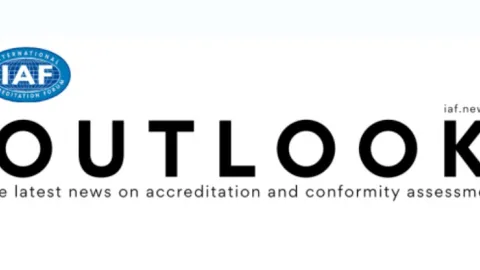News Asia
Please note that you have to be a registered member with paid membership in order to see full articles.
Become a MemberSelected News

SAMR Seeks Proposals to Develop New ISO Standards for 2026
The Standard Innovation Department of the State Administration for Market Regulation (SAMR) in China is calling for
Quality Month Campaign in China Promotes Green Certification and Carbon Awareness
China Quality Certification Center (CQC) launched a series of activities in September as part of the 48th National Quality Month,
India Invites Experts to Shape Software and Systems Engineering Standards
The Electronics and IT Department of the Bureau of Indian Standards (BIS) is calling for
KAN Accredits Integrated Laboratory of Lambung Mangkurat University to ISO 17025
The National Accreditation Committee of Indonesia (KAN) has accredited the Integrated Laboratory of Lambung Mangkurat University (ULM) under
Boosting Plastic Recycling with New TÜRKAK Accreditation Program
The Turkish Accreditation Agency (TÜRKAK) has launched an accreditation program to strengthen the traceability of plastics recycling and verification of recycled content.
Songlilai Trading Enterprise and Junshin Sushi Earn MSC and ASC Chain of Custody Certifications
Songlilai Trading Enterprise Pte Ltd and its subsidiary Junshin Sushi Pte Ltd have been certified under
Eight Taiwanese Cities Advance Net Zero Governance and Push Businesses to Adapt
Taiwan’s progress toward its 2050 net zero target is gaining momentum, with eight cities now adopting local net zero ordinances.
Organic Product Certification Revision: Stricter Rules in China Starting Next Year
The China National Certification and Accreditation Administration (CNCA) has issued a revised version of the Implementation Rules for Organic Product Certification,
Chinese National GMP Standard for Health Foods Revised
China’s National Health Commission (NHC) and the State Administration for Market Regulation (SAMR) have jointly issued
People’s Vote to Shape Future Standards: South Korea Launches Online Poll
The Korean Agency for Technology and Standards (KATS) has launched an online poll inviting citizens to help
Vietnam’s Son La Province Uses Quality Plan to Boost Local Brands and Productivity
Vietnam’s northwestern province of Son La is strengthening the competitiveness of
China Opens Consultation on 2025 National Standardization Pilot Projects
China has released for public comment the list of proposed 2025 national standardization pilot projects.Global News

ISO Survey 2024 Released as China’s Return Skews Global Results
The 2024 edition of the ISO Survey marks a major shift in how global certification data is collected -
Final Weeks Before Transition Deadline for ISO 27001: Act by End of October
The deadline for transitioning to the new ISO/IEC 27001:2022 version of the international information security management standard is approaching fast.
Public Consultation Opens on ISO 15614-1 Welding Procedures Standard
The draft version of ISO/DIS 15614-1:2025, a key international standard for specifying and qualifying welding procedures for metallic materials, is now open for public consultation.
SQF Delays Release of Edition 10 as Benchmarking Timeline Shifts
The release of Edition 10 of the Safe Quality Food (SQF) Code has been postponed due to
FSC Opens Consultations on Core Forest Management Standards
The Forest Stewardship Council (FSC) has launched public consultations on proposed revisions to its
Inclusive Conformity Assessment and Instant Verification Highlighted in New IAF Outlook Issue
The International Accreditation Forum (IAF) has published the September 2025 issue of IAF Outlook,
41 WTO Countries Demand GLOBAC Changes as DAkkS Pushes to Delay ILAC Dissolution
A coalition of 41 national accreditation bodies from WTO member states -
Global Specification ISO 6254 Sets Out Framework for Transparent AI Decision-Making
A new international technical specification, ISO/IEC TS 6254:2025,
ISO 9002 Revision Reaches Working Draft Stage
The International Organization for Standardization (ISO) has prepared a Working Draft (WD) and a
IFS Publishes White Paper to Support Allergen Management During Food Audits
IFS has released a new white paper that compiles official references to help
Epeaswitzerland Issues Three Digital Product Passports as Global Standards Advance
Epeaswitzerland gmbh has announced that it has issued three digital product passports under its

